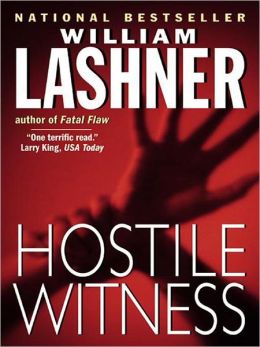Filed under: Book reviews | Tags: action, an, anti heroes, books, detective genre, entertainment, hard-boiled detective fiction, heroes, reading, summer, suspense, Victor Carl, William Lashner
 Down-and-out Philadelphia lawyer Victor Carl yearns for the opportunity to sell out. Get rich. Be respected in the legal community. Have hot women begging to date him. Then William Prescott III, upper-cruster from one of the city’s most distinguished firms, comes knocking at his door. Prescott wants Victor to represent a councilman’s aide who is, along with his boss, accused of extortion, arson, and murder. It’s a high-profile court case that promises everything Victor longs for, and all he has to do is turn up and do whatever Prescott tells him to. But Victor can’t be quiet when it’s clear someone is setting him and his client up to take a nasty fall. He may be desperate, but he’s no one’s patsy.
Down-and-out Philadelphia lawyer Victor Carl yearns for the opportunity to sell out. Get rich. Be respected in the legal community. Have hot women begging to date him. Then William Prescott III, upper-cruster from one of the city’s most distinguished firms, comes knocking at his door. Prescott wants Victor to represent a councilman’s aide who is, along with his boss, accused of extortion, arson, and murder. It’s a high-profile court case that promises everything Victor longs for, and all he has to do is turn up and do whatever Prescott tells him to. But Victor can’t be quiet when it’s clear someone is setting him and his client up to take a nasty fall. He may be desperate, but he’s no one’s patsy.
I read a Victor Carl short story by this author, which inspired me to buy a book about him ‘cause it was well-written, I like the hard-boiled detective fiction genre, and characters such as Sam Spade and Phillip Marlowe. These guys were tough mavericks in violent, double-crossing milieus, who were unflinching in their determination to achieve justice. This book doesn’t disappoint in terms of its main character, plot, and setting, but it is overly long and consequently repetitive, while Hammett and Chandler’s novels are concise and to the point – just like their (anti) heroes.
Filed under: TV reviews | Tags: American, British, Confinement, Corona virus, Covid-19, drama, entertainment, humor, Perspective, poverty, series, Shameless, Television, TV, William H. Macy
 Shameless USA is a family drama based on the UK’s long-running hit of the same name. William H. Macy leads the cast as the working class patriarch of an unconventional Chicago clan of six kids who, helmed by their eldest sibling, Fiona, keep their ramshackle home afloat while their dad is out getting blindingly drunk each day.
Shameless USA is a family drama based on the UK’s long-running hit of the same name. William H. Macy leads the cast as the working class patriarch of an unconventional Chicago clan of six kids who, helmed by their eldest sibling, Fiona, keep their ramshackle home afloat while their dad is out getting blindingly drunk each day.
While the original series, set in Manchester, is grimmer, grittier, and, arguably, more shameless than the USA based series, the American version is still good. Yes, even as the actors in the US version are more attractive, their teeth are good, and their home is larger and prettier than the British version (prompting the question of whether Americans are comfortable with the ugliness of poverty), their circumstances and behavior are similarly outrageous and touching. Sure, Americans don’t ‘do’ subtlety as well as the British, so much of the action is obvious and flat-footed (such as when young Debbie puts the pillow under the head of her passed out father, thereby showing us the acceptance and love that the family feel for him, rather than permitting the audience to discern that via observation), they are still an audacious, criminally-inclined family trying to survive without resources other than their wits and each other.
I came late to these series, which have both been running since 2004 and 2011*, respectively, but it’s never too late to watch entertaining television – particularly during confinement. Moreover, I have found that by watching these fictional families, which in many ways reflect the truth of poverty in that the people make perpetual sacrifices in order to meet the minimum needs of life, have to get by on practically nothing, and whose permitted aspirations are often little more than surviving, I have gained perspective about my own life’s desires and expectations. As I’m entertained watching this series, I’m also inspired and resolved to be more modest in general. And, at this terrible moment in our shared global history, that’s a good thing to learn and to remember as we face our collectively uncertain future.
*Ending in UK in 2013 and in USA in 2021.